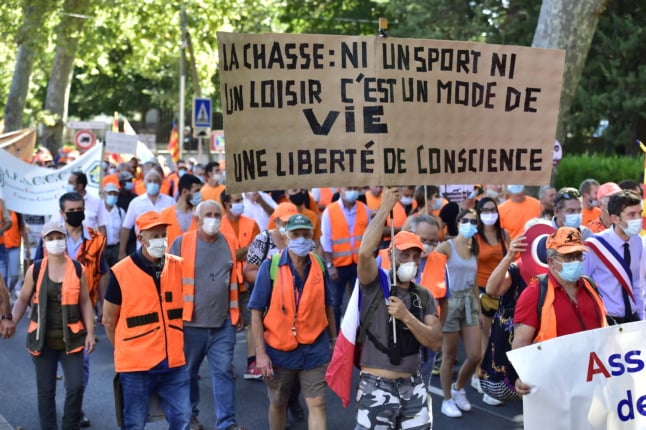The State Council’s move comes after the EU Court of Justice said in March that using so-called glue traps caused “irreparable harm” to the thrushes and blackbirds that are caught.
The birds are then used to lure others to the waiting hunters, who say they are later cleaned of the sticky material, called birdlime, and released. But critics say the technique invariably leads to the capture of a wide variety of birds that are often injured, including having their feathers damaged or torn off.
READ ALSO Chasse à la glu: Why French hunters are taking the streets
France was the last EU member to still authorise the traps with an annual quota of 42,000 birds, mainly in southern France, though President Emmanuel Macron suspended the hunt last August pending the EU court ruling.
Two campaign groups had brought a case against the French environment ministry arguing that the practice constituted animal cruelty.
Activists say that 150,000 birds die annually in France from non-selective hunting techniques such as glue traps and nets at a time when Europe’s bird population is in free-fall.



 Please whitelist us to continue reading.
Please whitelist us to continue reading.
Good news
Cats, both domestic and feral, kill an astronomical number of birds per year in France. Cats kill >2.5 BILION birds/year worldwide. Gardez votre chat à l’intérieur !